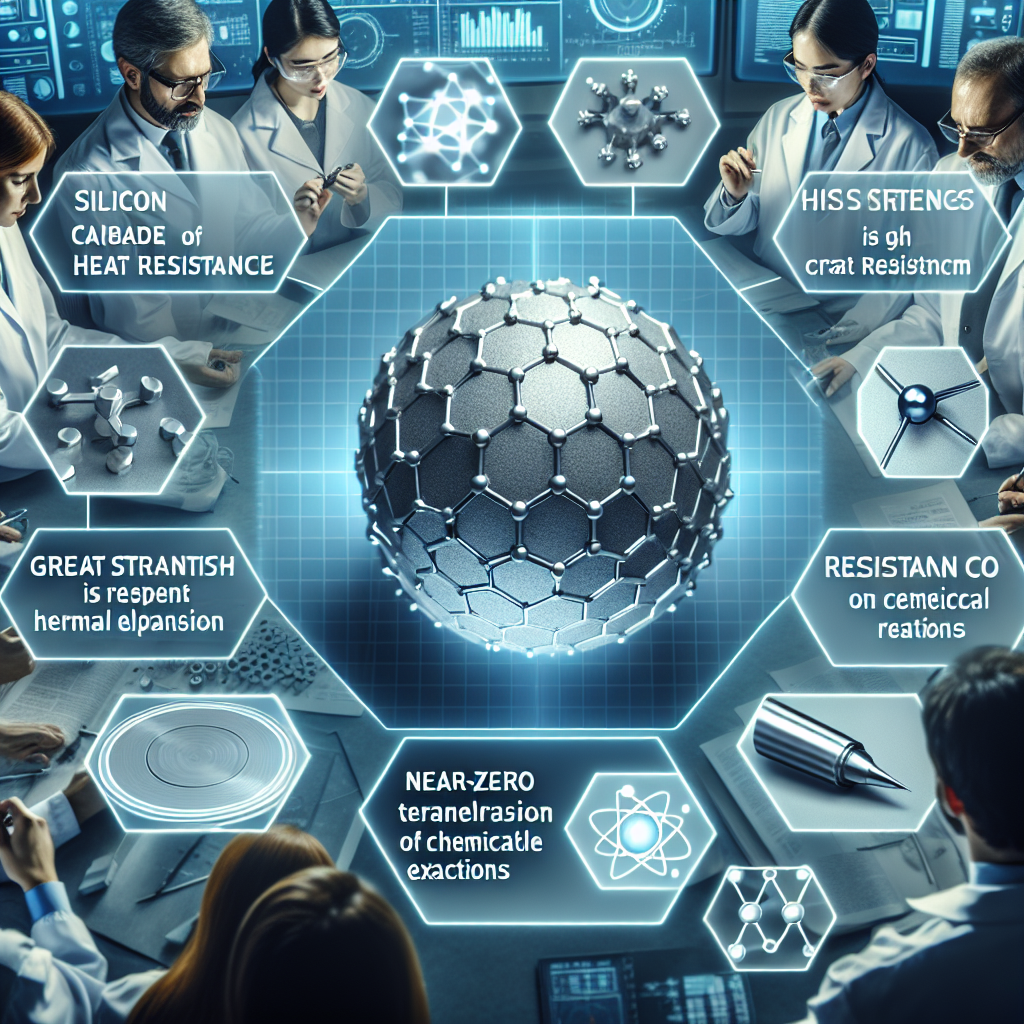### The Advantages of silicon carbide ceramic
Silicon carbide (SiC) ceramic is a material that has garnered significant attention and widespread usage across various industries due to its exceptional properties. This advanced ceramic material offers a unique combination of hardness, thermal stability, and chemical resistance, making it a superior choice for applications in harsh environments. This article delves into the numerous advantages of silicon carbide ceramic, exploring its applications and the benefits it brings to different sectors.
#### Exceptional Hardness and Wear Resistance
Silicon carbide is one of the hardest materials available, with a hardness value close to that of diamonds. This extreme hardness makes SiC ceramics highly resistant to wear and abrasion. In industrial applications where components are subjected to high levels of mechanical stress and abrasive conditions, SiC ceramics outperform metals and other non-oxide ceramics in terms of durability and wear life. This property is particularly beneficial in applications such as mechanical seals, bearings, and cutting tools, where longevity and reliability are crucial.
#### High Thermal Conductivity and Stability
Silicon carbide ceramics exhibit high thermal conductivity, which is a critical factor in applications requiring efficient heat dissipation. This property ensures that SiC components can maintain their structural integrity and performance at high temperatures, where other materials might degrade or fail. The thermal stability of SiC ceramics makes them ideal for use in automotive brakes, turbine components, and heat exchanger tubes. They can withstand temperatures up to 1600°C, making them suitable for high-temperature applications beyond the capacity of most metals and polymers.
#### Superior Chemical Resistance
Another significant advantage of silicon carbide ceramics is their excellent resistance to a wide range of chemicals. This includes acids, alkalis, and corrosive salts, making SiC an ideal material for chemical processing equipment. Components made from SiC ceramics can endure harsh chemical environments without corroding, ensuring longer service life and reduced maintenance costs. This chemical stability also makes SiC suitable for applications in the semiconductor industry, where purity and resistance to corrosive chemicals are mandatory.
#### Low Thermal Expansion and High Thermal Shock Resistance
Silicon carbide ceramics have a low coefficient of thermal expansion. This property minimizes the size changes that occur with temperature variations, thus reducing the risk of thermal stress and cracking in applications involving rapid temperature changes. Additionally, SiC’s ability to withstand severe thermal shocks — rapid changes in temperature — without cracking is crucial for applications such as rocket engines, gas turbines, and kiln furniture used in high-temperature processing.
#### Electrical Conductivity and Semiconductor Properties
Silicon carbide is a semiconductor, which offers unique electrical properties such as high electron mobility and voltage breakdown resistance. These properties make SiC an excellent material for power electronic devices, such as high-voltage, high-temperature diodes and transistors. The use of SiC in these applications results in more efficient power distribution systems with lower losses, higher switching frequencies, and reduced heat generation.
#### Lightweight and High Strength
Despite its hardness and durability, silicon carbide is relatively lightweight compared to other materials with similar mechanical properties, such as metals. This makes SiC an excellent choice for applications where reducing weight is essential, such as in aerospace and automotive components. The high strength-to-weight ratio of SiC ceramics contributes to better fuel efficiency and performance in these industries.
#### Biocompatibility
Silicon carbide is also known for its biocompatibility, making it suitable for medical implants and devices. Unlike some other ceramic materials, SiC does not produce adverse reactions when implanted in the human body. This property, combined with its wear resistance and chemical stability, makes it an ideal material for prosthetic devices and other medical applications where longevity and safety are critical.
#### Environmental Impact
Finally, the use of silicon carbide ceramics can have a positive environmental impact. Due to their durability and long service life, the need for frequent replacement is reduced, leading to less waste and lower consumption of raw materials. Additionally, the energy efficiency improvements in power electronics and automotive components made from SiC contribute to reduced carbon emissions.
### Conclusion
The advantages of silicon carbide ceramics are manifold, spanning across various properties such as hardness, thermal stability, chemical resistance, and biocompatibility. These characteristics make SiC an indispensable material in many high-tech industries, including automotive, aerospace, electronics, and healthcare. As technology advances and demands for high-performance materials increase, the role of silicon carbide ceramics is set to grow, driving innovations and improving efficiencies in numerous applications.